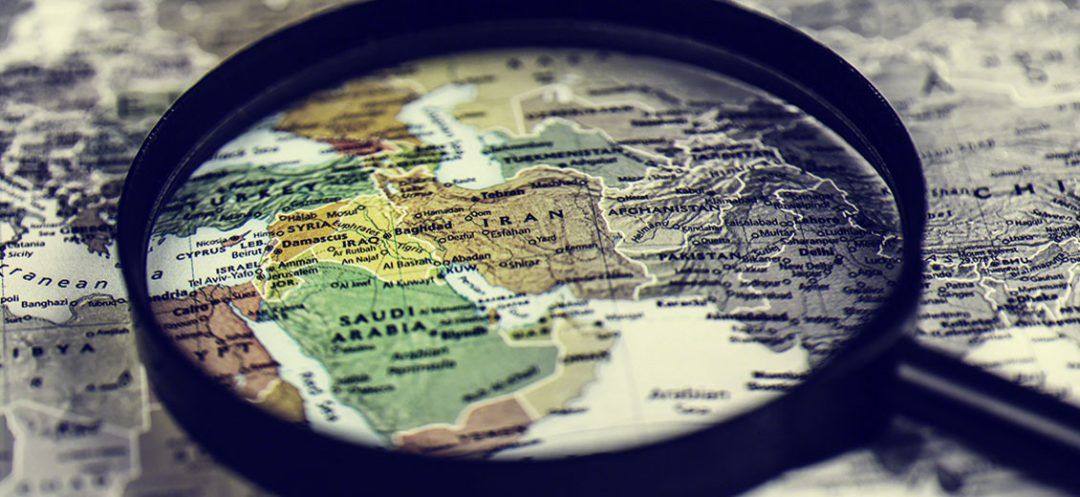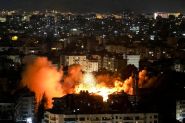- Home
- War in the Middle East
- Peace in the Middle East More Elusive Than Ever…

There are growing concerns about the future of the Middle East in light of the significant transformations the region has undergone since the events of October 7, 2023, and the subsequent Israeli war on Gaza, which has claimed over 40,000 lives and left the enclave completely devastated and uninhabitable for years to come. The battle rages on despite repeated international calls for a ceasefire, which have been largely ignored.
Amid the ongoing Israeli onslaught on the West Bank, coupled with the dramatic events unfolding in Gaza, new developments signal serious consequences, including the demolition of homes, destruction of roads and disruption of daily life in both urban and rural areas. Furthermore, the increased militarization of settlers has led to a surge in raids on Palestinian homes and safe locations. The Palestinian cause is facing unparalleled challenges that seem more dangerous than in most previous phases of the conflict.
The notion of the "peace process" has largely fallen out of the spotlight, particularly since the 1993 Oslo Agreement, signed in the White House Rose Garden under President Bill Clinton. This accord, perceived as flawed, failed to fulfill the Palestinian people’s aspirations for an independent state, with Jerusalem as its capital. It also did not address the return of refugees who have been forcibly displaced from their homeland since 1948 in various waves and stages. The delay in addressing key issues – such as the future of Jerusalem, borders, water and refugees – has contributed to the ongoing deadlock. Over time, it became clear that even a preliminary agreement was unacceptable to Israel, and Prime Minister Yitzhak Rabin, who "dared" to sign the accord, was assassinated by a Jewish extremist.
Today, the situation in Israeli society remains largely unchanged, with even the few voices of those who once identified as part of the "peace camp" now significantly muted. The current public protests in Tel Aviv are primarily aimed at pressuring the Israeli government and Prime Minister Benjamin Netanyahu to address the issue of hostages held by Hamas, rather than seeking an end to the war or a ceasefire.
Moreover, Israeli society as a whole seems largely indifferent to the notion of peace. Some citizens are opting to leave Israel and return to their countries of origin – whether in Europe, the United States or elsewhere – rather than staying under the current conditions. Meanwhile, National Security Minister Itamar Ben-Gvir's deliberate arming of settlers in the West Bank, conducted under the watchful eye of photographers and the media, suggests a clear intention to drive Palestinians toward a new wave of displacement.
Efforts to expel Palestinians have persisted since the 1948 Nakba. This issue resurfaced during the last conflict, with plans to force Palestinians out of the Gaza Strip. Today, extremist voices in Israel are calling for the complete reoccupation of Gaza and the reconstruction of settlements, arguing that it is part of a "Greater Israel" that should never have been dismantled or abandoned.
Over the decades, Israel has consistently dismissed all political peace “offers,” rejecting every United Nations resolution and disregarding the generous Arab Peace Initiative. Endorsed at the Beirut Summit in 2002, this initiative is based on a two-state solution along the 1967 borders and the principle of land for peace.
Attempts to sidestep the Palestinian issue through the Abraham Accords – signed in Washington under former President Donald Trump between several Arab countries and Israel to normalize relations – have swiftly proven insufficient. It became evident that these agreements could not resolve the conflict without addressing the legitimate national demands of the Palestinian people.
The Palestinian issue cannot be relegated to just a security or economic concern, as this approach has proven ineffective. Discussions about peace in the Middle East must acknowledge that resolving the Palestinian issue is at the heart of the conflict, and a comprehensive, fundamental solution is essential.
The future of the region is grim, and any talks of peace at this stage seem increasingly elusive…
Read more




Comments